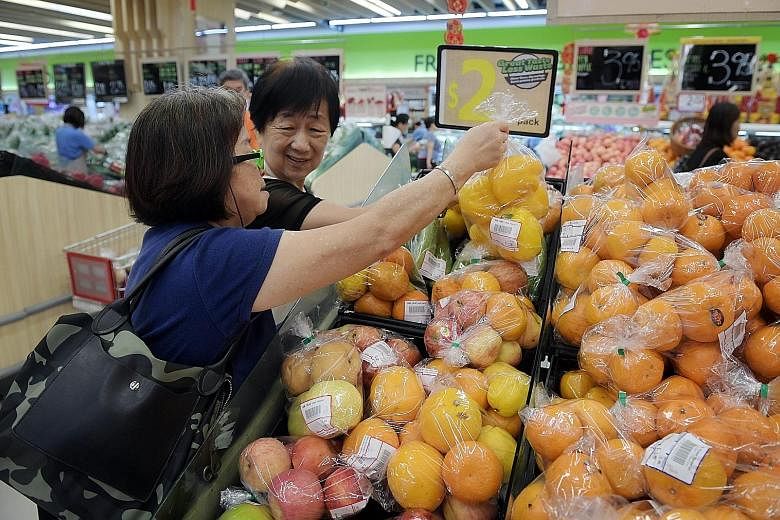Close to one-fifth of imported and locally farmed fresh produce here is lost along the food supply chain every year, amounting to a loss of $2.54 billion, a study conducted by the Singapore Environment Council (SEC) and consultancy firm Deloitte Singapore has found.
Two million tonnes of fresh produce are imported into Singapore each year, while less than 10 per cent of the food that the Republic needs is produced locally.
The study found that the one-fifth of food that is lost and wasted translates to 393,000 tonnes of vegetables, fruits, fish, seafood and eggs that are spoilt and damaged during the post-harvest stage, storage, packaging and transportation.
These include food wastage, when food close to their best-before dates and vegetables that look unappealing are left on the shelves and thrown away.
From the study, the main causes of food loss are poor disease and pest management in farms and warehouses, over-importing, a broken cold chain management, and inadequate infrastructure to prevent food spoilage.
This is the first food waste study that examines food loss and waste from farm to market.
For the study, SEC and Deloitte Singapore looked at existing local and international research on food loss and waste, and interviewed more than 30 key stakeholders in the local food supply chain from May to this month.
SEC executive director Jen Teo said there is a tendency for buyers to over-import food because of competitive pricing and a desire to meet consumers' demands for high-quality food.
SEC chairman Isabella Huang-Loh added: "Everyone wants to compete with one another for price, but it leads to more perishables lost in the process."
The study emphasised that an unbroken cold chain from farm to table is needed to maintain the quality of fresh produce and avoid pest infestation.
Mr Rayson Ng, Deloitte Singapore's risk advisory director, said: "A wholesale centre is housed in an open-air, humid setting. We realised that the shelf life of the vegetables can be lengthened if the wholesale centre were to be in a temperature-controlled environment. "
Ms Huang-Loh said that the $2.54 billion lost can otherwise be used to build efficient logistics firms, create jobs in the fresh-food supply chain and create innovations to prevent food loss.
Mr Ng said: "If we can cut down on food loss, (the saved food) could be our fourth 'food basket'. This can help us in improving the country's food resilience and security."
Imported food, local farms and food grown overseas make up the three "food baskets", with a focus on the latter two to achieve Singapore's goal in producing 30 per cent of its food needs by 2030.
The Singapore Food Agency and National Environment Agency (NEA) said in a joint response to The Straits Times that NEA will be implementing mandatory requirements for new developments which are expected to generate large amounts of food waste.
These developers must set aside space for on-site food waste treatment in their design plans submitted from 2021, and implement the facility from 2024.
SEC will discuss the study's findings and explore solutions with industry players and experts on Aug 27 at the SEC Convention and Singapore Environmental Achievement Awards, which recognise organisations that have exemplary environmental practices.



